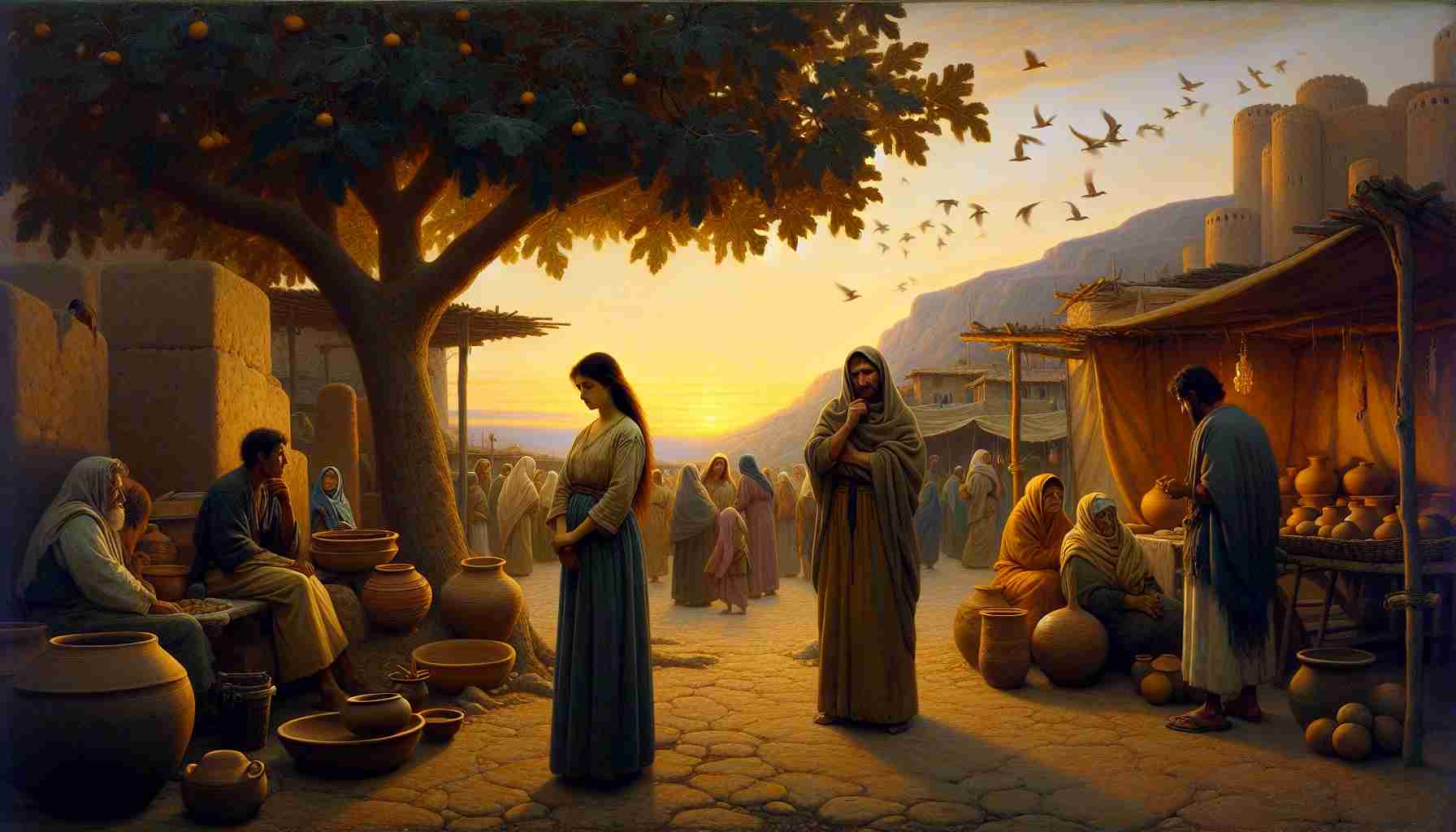

They say I was the fool who loved a woman beyond repair. Let them say it. My name is Eliab, and I served in the house of the prophet Hosea during the days when Israel had forgotten her God.
I still remember the morning Hosea told me. He was sitting by the olive press, hands coated in oil and dust, his eyes far away.
“Eliab,” he said quietly, “the Holy One has spoken. I am to take a wife—one who is unfaithful.”
I stared at him, thinking I had misheard. “You mean... a harlot?” I asked, lowering my voice, ashamed to say it aloud.
He nodded. “Her name is Gomer. And yes, she will betray me. Again and again. As Israel has betrayed God. But I must love her still.”
I thought he was mad. A prophet taking a woman like that? And yet, every part of him was steady—obedient, as always. So, he married Gomer, and I watched a miracle begin... and unravel.
For a while, there was peace. They had a son, Jezreel. I remember his tiny cries echoing in the house, a sound of hope. But while Hosea whispered blessings, I saw the worry behind his eyes. Not long after, she bore a daughter—and Hosea named her Lo-Ruhamah, which means “not loved.” I flinched when I heard it, but Hosea’s voice didn’t waver. “God says He will no longer show love to Israel.”
Then came Lo-Ammi—“not my people.”
By the third child, it was plain Gomer had left in more than spirit. She had returned to her old life. She wandered, slipped out of the house when the sun fell, and sometimes didn’t come back for days. Hosea didn’t cry in front of anyone, but I heard him praying beneath the fig tree one night. “Why must I love her still, my God, when her heart beats for others?”
Still, he waited. Still, he loved.
Then one morning, he stood up from prayer and said, “She is lost. Sold as a slave. I will go and buy her back.”
“Buy her?” I asked, angry despite myself. “She humiliated you! Do you not see what she has done?”
He looked at me, and there was grief in his face, but deeper than that—mercy.
“As God loves Israel, though she chases false gods and forgets His name, so must I love Gomer. Not because she is good to me, but because He has called me to love—still.”
I followed him to the marketplace, watched him pay silver and barley to the man who now owned her. Gomer was thin, ashamed, head down. But Hosea lifted her chin gently and said, “You will dwell with me. You will not stray. I will be yours, as God is still ours.”
That day, I understood something I never had before: love is not earned. Real love, the kind God shows to His people, is given even when brokenness remains.
And I learned what kind of man I wanted to become.
They say I was the fool who loved a woman beyond repair. Let them say it. My name is Eliab, and I served in the house of the prophet Hosea during the days when Israel had forgotten her God.
I still remember the morning Hosea told me. He was sitting by the olive press, hands coated in oil and dust, his eyes far away.
“Eliab,” he said quietly, “the Holy One has spoken. I am to take a wife—one who is unfaithful.”
I stared at him, thinking I had misheard. “You mean... a harlot?” I asked, lowering my voice, ashamed to say it aloud.
He nodded. “Her name is Gomer. And yes, she will betray me. Again and again. As Israel has betrayed God. But I must love her still.”
I thought he was mad. A prophet taking a woman like that? And yet, every part of him was steady—obedient, as always. So, he married Gomer, and I watched a miracle begin... and unravel.
For a while, there was peace. They had a son, Jezreel. I remember his tiny cries echoing in the house, a sound of hope. But while Hosea whispered blessings, I saw the worry behind his eyes. Not long after, she bore a daughter—and Hosea named her Lo-Ruhamah, which means “not loved.” I flinched when I heard it, but Hosea’s voice didn’t waver. “God says He will no longer show love to Israel.”
Then came Lo-Ammi—“not my people.”
By the third child, it was plain Gomer had left in more than spirit. She had returned to her old life. She wandered, slipped out of the house when the sun fell, and sometimes didn’t come back for days. Hosea didn’t cry in front of anyone, but I heard him praying beneath the fig tree one night. “Why must I love her still, my God, when her heart beats for others?”
Still, he waited. Still, he loved.
Then one morning, he stood up from prayer and said, “She is lost. Sold as a slave. I will go and buy her back.”
“Buy her?” I asked, angry despite myself. “She humiliated you! Do you not see what she has done?”
He looked at me, and there was grief in his face, but deeper than that—mercy.
“As God loves Israel, though she chases false gods and forgets His name, so must I love Gomer. Not because she is good to me, but because He has called me to love—still.”
I followed him to the marketplace, watched him pay silver and barley to the man who now owned her. Gomer was thin, ashamed, head down. But Hosea lifted her chin gently and said, “You will dwell with me. You will not stray. I will be yours, as God is still ours.”
That day, I understood something I never had before: love is not earned. Real love, the kind God shows to His people, is given even when brokenness remains.
And I learned what kind of man I wanted to become.